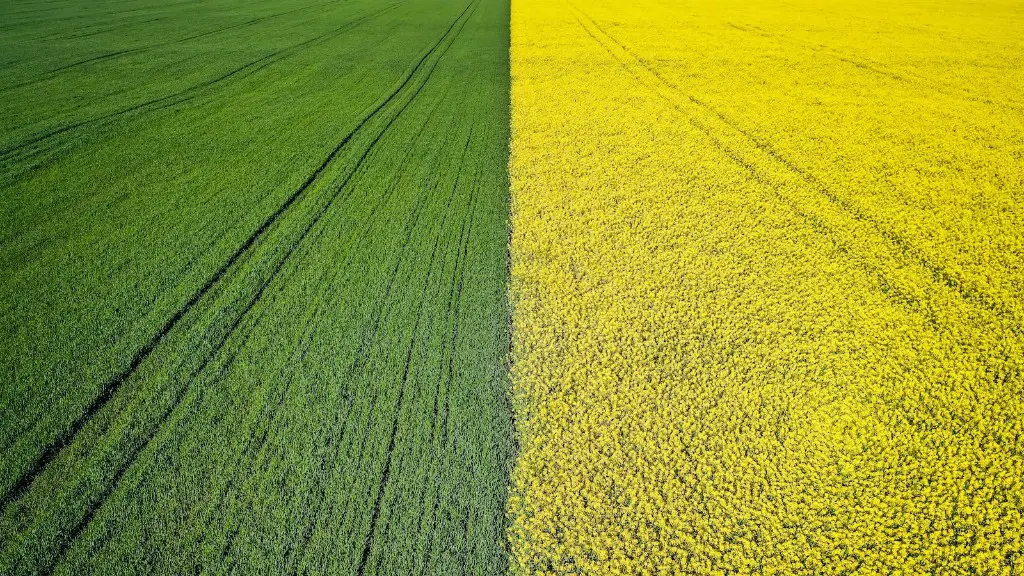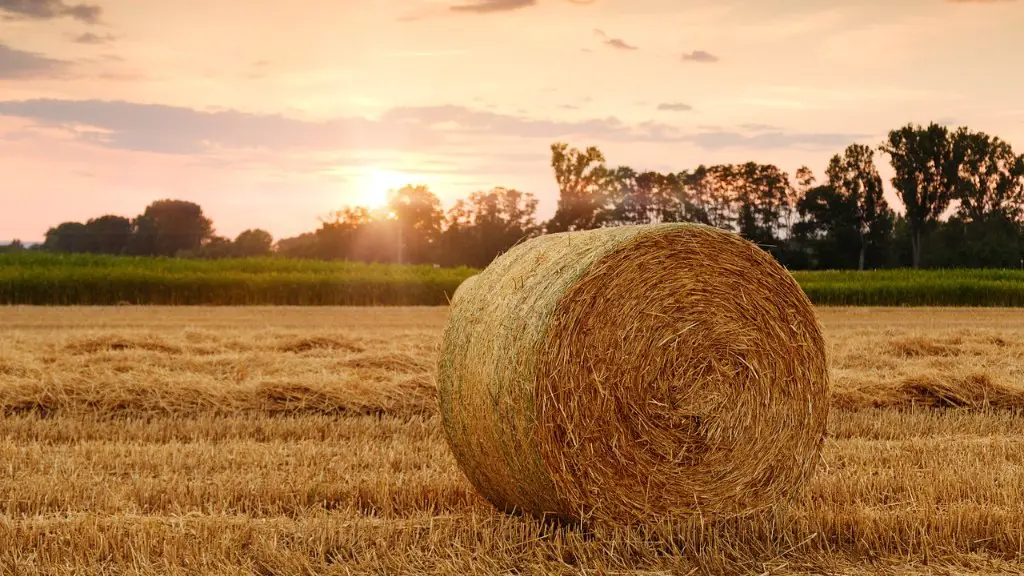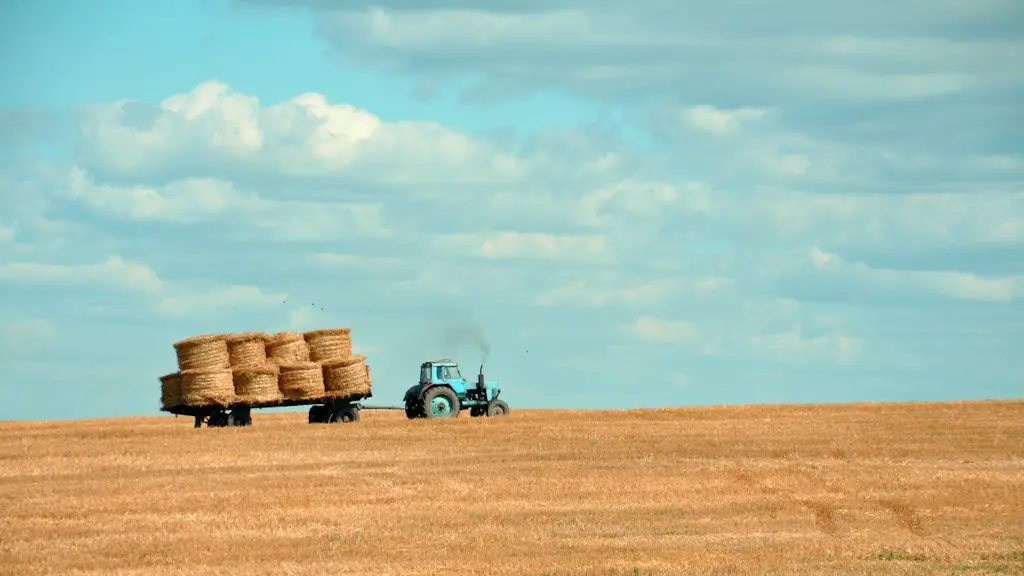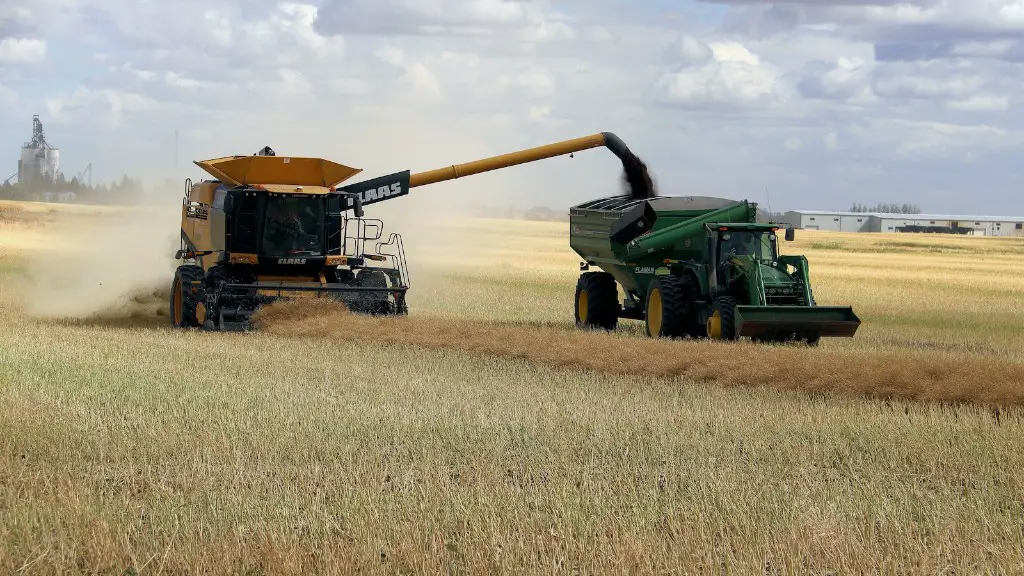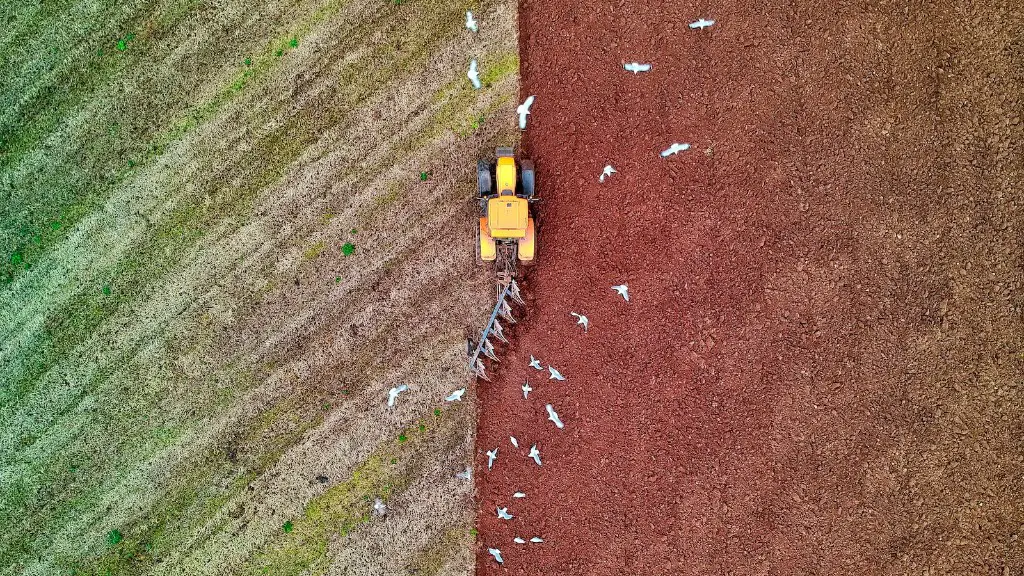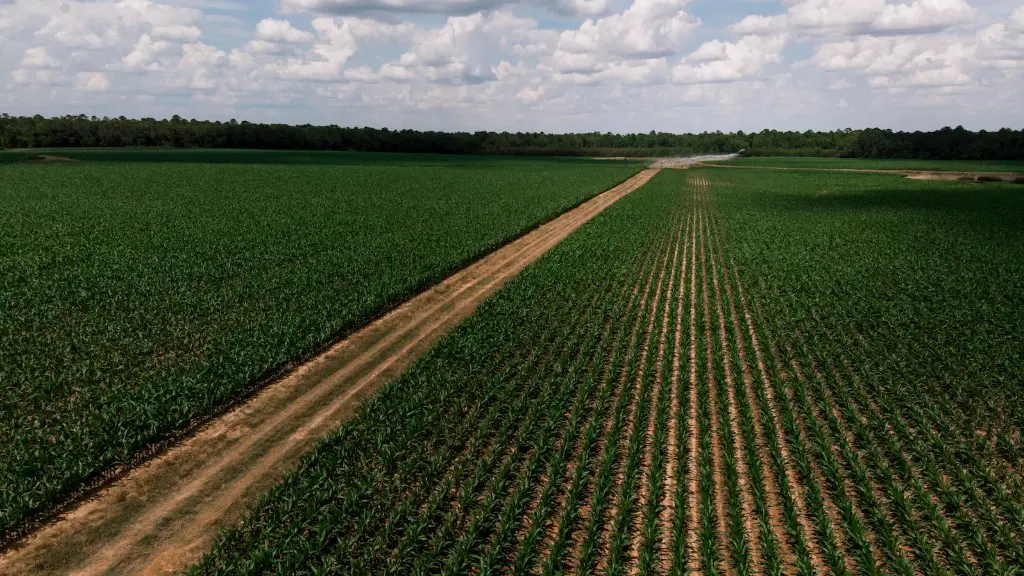The agricultural sector is one of the most important sectors of the global economy. It is responsible for providing food and other crops for the world’s population. The sector is also a major source of employment and livelihoods.
Climate change is a major threat to agriculture. It is expected to cause reductions in crop yields, as well as increases in pest and disease outbreaks. Climate change will also impact the availability of water for irrigation, as well as the quality of the soil. These factors will have a direct impact on the ability of the agricultural sector to meet the needs of the world’s population.
Global warming definitely affects agriculture. One way is that it creates droughts, which can ruin crops. It also makes it difficult for farmers to predict when to plant their crops. Weather patterns are becoming more and more unpredictable, and that makes it hard for farmers to know when it will be too cold or too hot for their crops. Additionally, pests and diseases are now appearing in areas where they were never a problem before because of the changing climate. All of these factors make it harder for farmers to produce food, which affects the food supply.
How could global warming impact agriculture?
Climate change is a huge threat to food security. It can disrupt food availability, reduce access to food, and affect food quality. For example, projected increases in temperatures, changes in precipitation patterns, changes in extreme weather events, and reductions in water availability may all result in reduced agricultural productivity. This would lead to higher food prices, and less food available for people who are already struggling to meet their basic needs. We must take action to mitigate and adapt to climate change, in order to protect our food supply and ensure that everyone has enough to eat.
Climate change is expected to cause annual variations in crop production to increase due to effects on weather patterns and increases in extreme weather events. Soil and water quality and quantity are expected to decline due to increasing extremes in precipitation.
Is agriculture one of the major contributors to global warming
Agriculture is a major contributor to climate change, accounting for 19-29% of total greenhouse gas emissions. The sector is also one of the most vulnerable to the impacts of climate change, making adaptation an urgent priority.
There are a range of options available to address agriculture’s contribution to climate change, including improving efficiency, changing production practices, and promoting voluntary carbon markets. However, any action must be taken in the context of ensuring food security for a growing world population.
Climate change is a major threat to food security, and engineered crops could help mitigate its effects. Droughts and extreme weather conditions are expected to become more common as the climate changes, so crops that can withstand these conditions will be increasingly important.
Genetic engineering is one tool that can be used to develop drought- and flood-resistant crops. For example, researchers have developed a strain of rice that can withstand prolonged periods of drought. This rice variety is now being grown in India, where it is helping farmers to cope with increasingly erratic weather patterns.
Developing climate-resilient crops is a key part of ensuring food security in a changing climate. With the right policies in place, engineered crops could play a major role in mitigating the impacts of climate change and helping to ensure a food-secure future for all.
Why is climate change a threat to agriculture?
The agricultural sector is one of the most important sectors of the economy, and extreme climate events can have a significant negative impact on it. The major events that can affect agriculture are hurricanes, floods, landslides, droughts and heavy winds. These events can damage crops, destroy infrastructure, and disrupt supply chains. In addition, extreme weather can also cause mental health problems for farmers and other agricultural workers.
The world is facing an unprecedented threat from crop failures. By 2030, the likelihood of a crop failure will be 45 times higher than it is today. By 2050, the likelihood shoots up to 25 times current rates. By mid-century, the world could be facing a rice or wheat failure every other year, with the probability of soybean and maize failures even higher. This is a crisis that we cannot afford to ignore. We must take action now to protect our food supply and ensure that our crops can withstand the challenges of a changing climate.
What is the number 1 contributor to global warming?
Fossil fuels are the largest contributor to global climate change, accounting for over 75 per cent of all greenhouse gas emissions. These emissions cause the Earth’s atmosphere to trap the sun’s heat, resulting in a rise in global temperatures. This rise in temperature is the primary cause of climate change, and it is having a devastating effect on our planet. Climate change is causing extreme weather events, rising sea levels, and a host of other problems that are putting our planet and its inhabitants at risk. We must take action to reduce our reliance on fossil fuels and switch to cleaner, renewable sources of energy if we want to avoid the worst effects of climate change.
Climate change affects agriculture in a number of ways; including through changes in average temperatures, rainfall and climate extremes with an important impact on soil erosion (ie floods, drought, etc). Changes in pests and diseases, changes in atmospheric carbon dioxide, and changes in the nutritional quality of some foods are also potential impacts of climate change on agriculture. Agricultural production systems will need to adapt to these changes in order to remain productive and sustainable.
Do farmers believe in global warming
Interesting findings from the survey on farmers’ beliefs about climate change. It appears that there has been a significant shift in thinking on this topic in just a few short years. It will be interesting to see how this affects farmers’ decisions and actions going forward.
A new study has shown that the effects of climate change on agriculture could be more drastic than previously thought. The study, which considered the response of economic agents to climate change, found that without carbon fertilization, global crop yields could decrease by 17% by 2050. This would have a devastating impact on food security and the livelihoods of millions of people around the world. The findings highlight the need for urgent action to mitigate the effects of climate change and adapt to its impacts.
What will happen to the crops in 2050?
This new technology is called CRISPR, and it holds a lot of promise for the future of agriculture. With CRISPR, scientists can precisely target and edit genes in DNA, which could lead to the development of better crop varieties. This could have a large impact on the agricultural industry, as it would allow for a wider variety of crops to be grown.
Coffee is one of the most popular beverages in the world and the coffee industry is a huge global market. However, coffee is a very sensitive crop and is susceptible to high temperatures. A new report has found that in countries where the majority of the world’s Arabica coffee is produced, the suitability for growing the crop will decrease by around half by 2050. This is a very drastic reduction and will have a major impact on the coffee industry.
Does the US still pay farmers not to grow crops
The US farm program’s subsidies to farmers in environmentally sensitive areas encourages farmers to maintain their land in its natural state and avoid development. These payments also support farmers in their transition away from environmentally harmful farming practices.
It is estimated that by 2050 the world will face a 60% shortfall in the amount of water available for agriculture, due to climate change and population growth. At the same time, the amount of arable land is expected to decrease by 35%. These factors combined with the increased demand from population and economic growth, will create a global food shortage around 2050. Professor Cribb believes that we need to start thinking about how to produce food in a more sustainable way now, in order to avoid this looming crisis.
How many years of farming are left?
The UN’s Food and Agricultural Organization has sounded the alarm that if soil erosion continues at its current pace, the world could run out of topsoil in just 60 years. This is a very serious problem, as soils are the basis of life. The Food and Agriculture Organization is urging everyone to take action to protect our soils.
China was the world’s top emitter of carbon dioxide in 2021, accounting for nearly 31 percent of the global total. The country’s emissions have continued to grow in recent years, despite pledges to peak its emissions by 2030. The world’s top five largest polluters were responsible for roughly 60 percent of global CO₂ emissions in 2021. China, the United States, India, Russia, and Japan were the top five emitters, respectively. All five countries have seen their emissions grow in recent years.
Conclusion
Global warming can potentially have a negative impact on agriculture. The main way that global warming could affect agriculture is through changes in temperature and precipitation. For example, if the average global temperature increases, it could lead to more extreme weather conditions like droughts or flooding. These conditions could damage crops and make it more difficult to grow food. Additionally, global warming could also disturb the delicate balance of ecosystems, which could have a ripple effect on agriculture.
The greenhouse gases that contribute to global warming can also have an effect on agriculture. Warming temperatures can lead to longer growing seasons and increased evaporation, which can lead to increased water needs for crops. Additionally, extreme weather events, such as droughts and floods, can have a negative impact on crop yields. While the overall effect of global warming on agriculture is still being studied, it is clear that it can have both negative and positive impacts on this vital sector of the economy.
